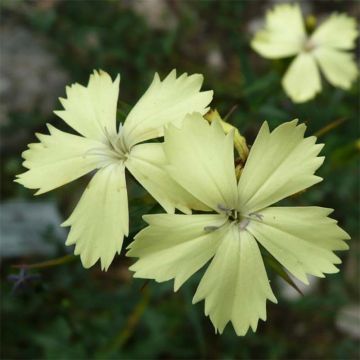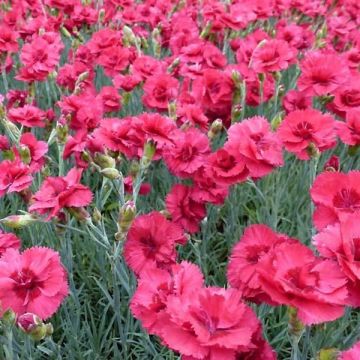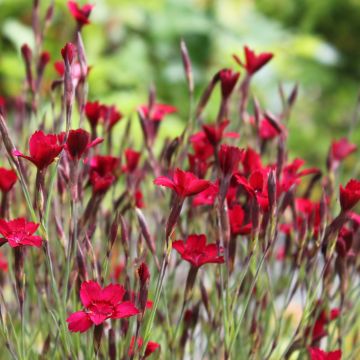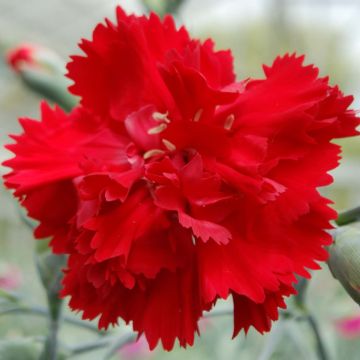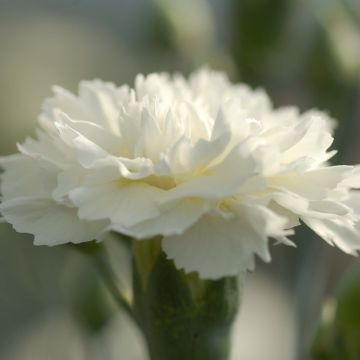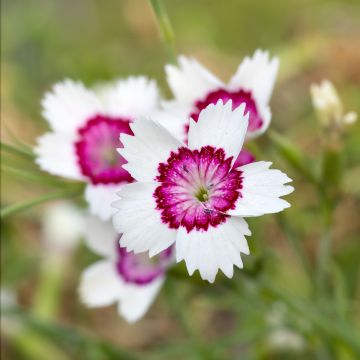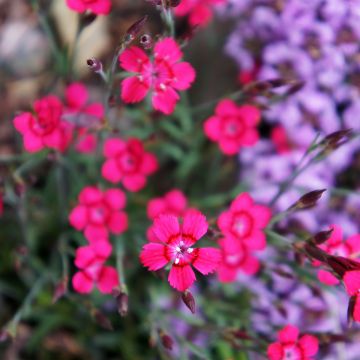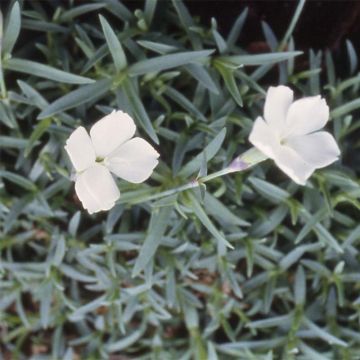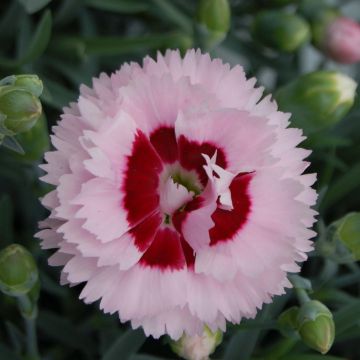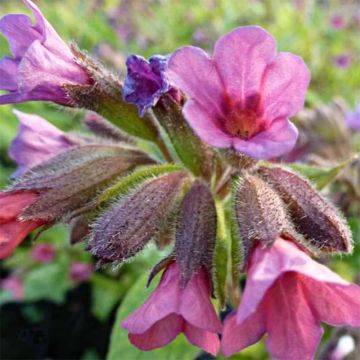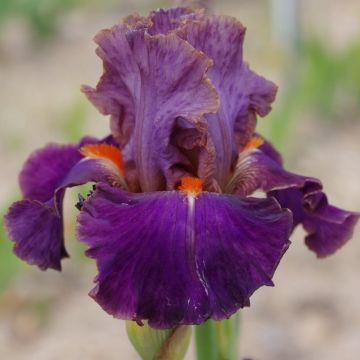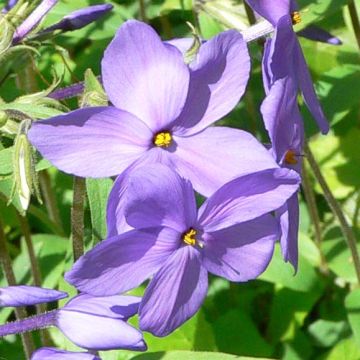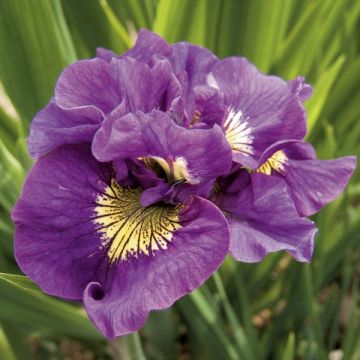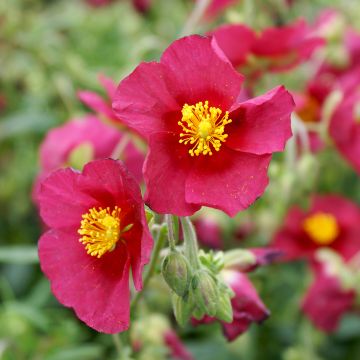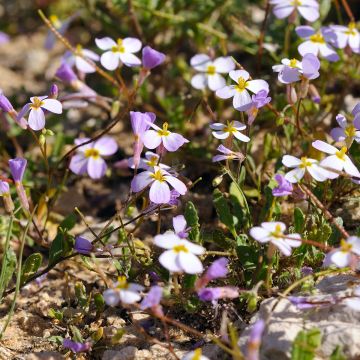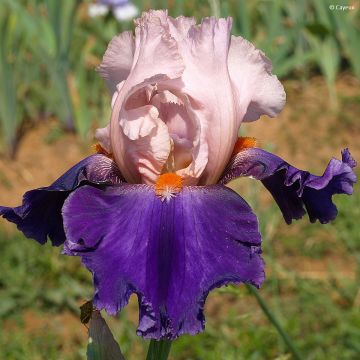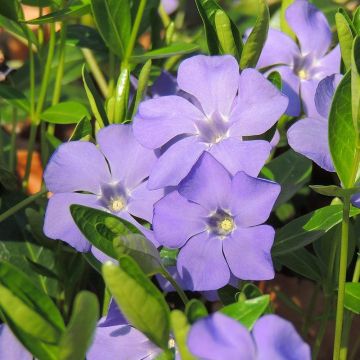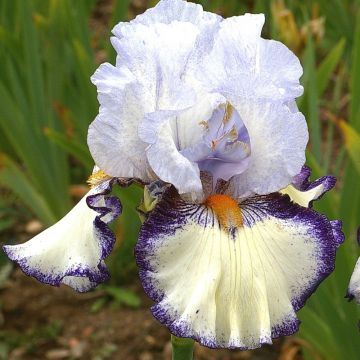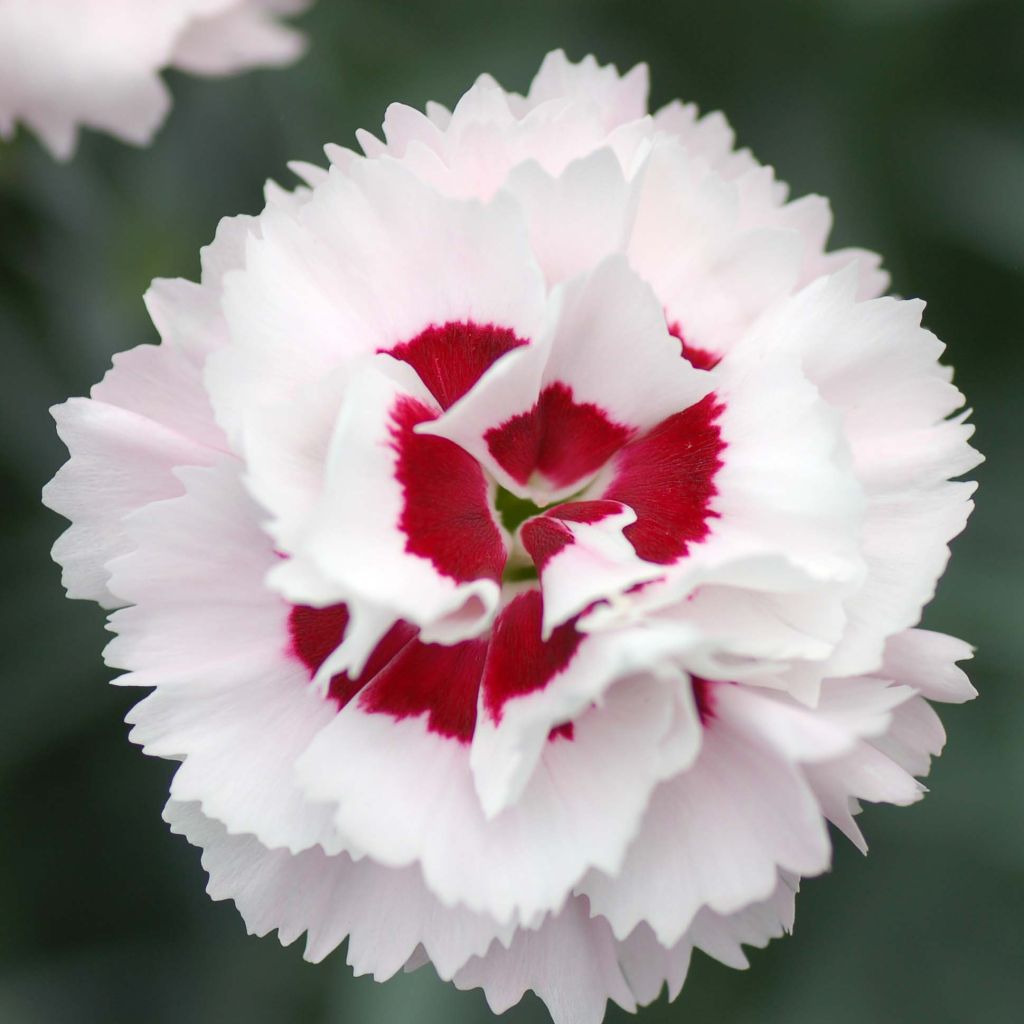

Dianthus plumarius Scent First Coconut Sundae
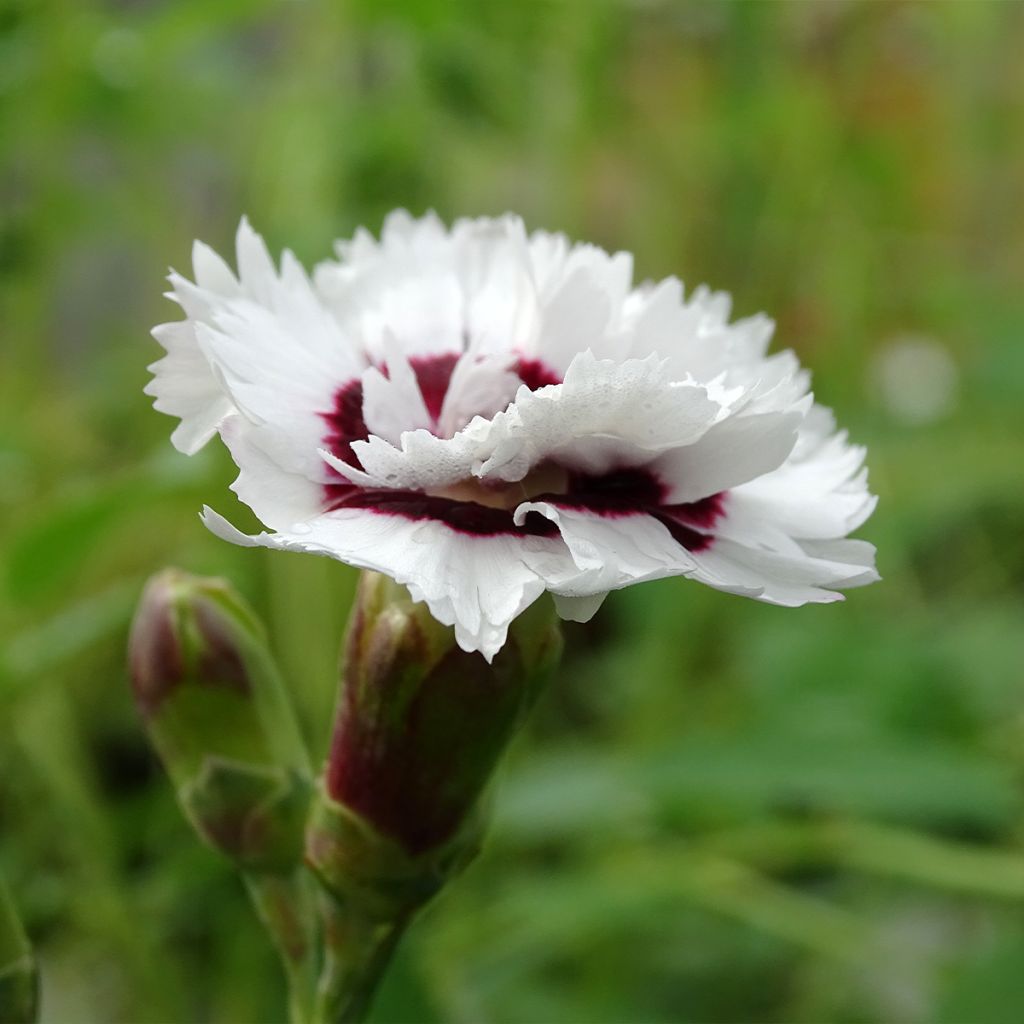

Dianthus plumarius Scent First Coconut Sundae
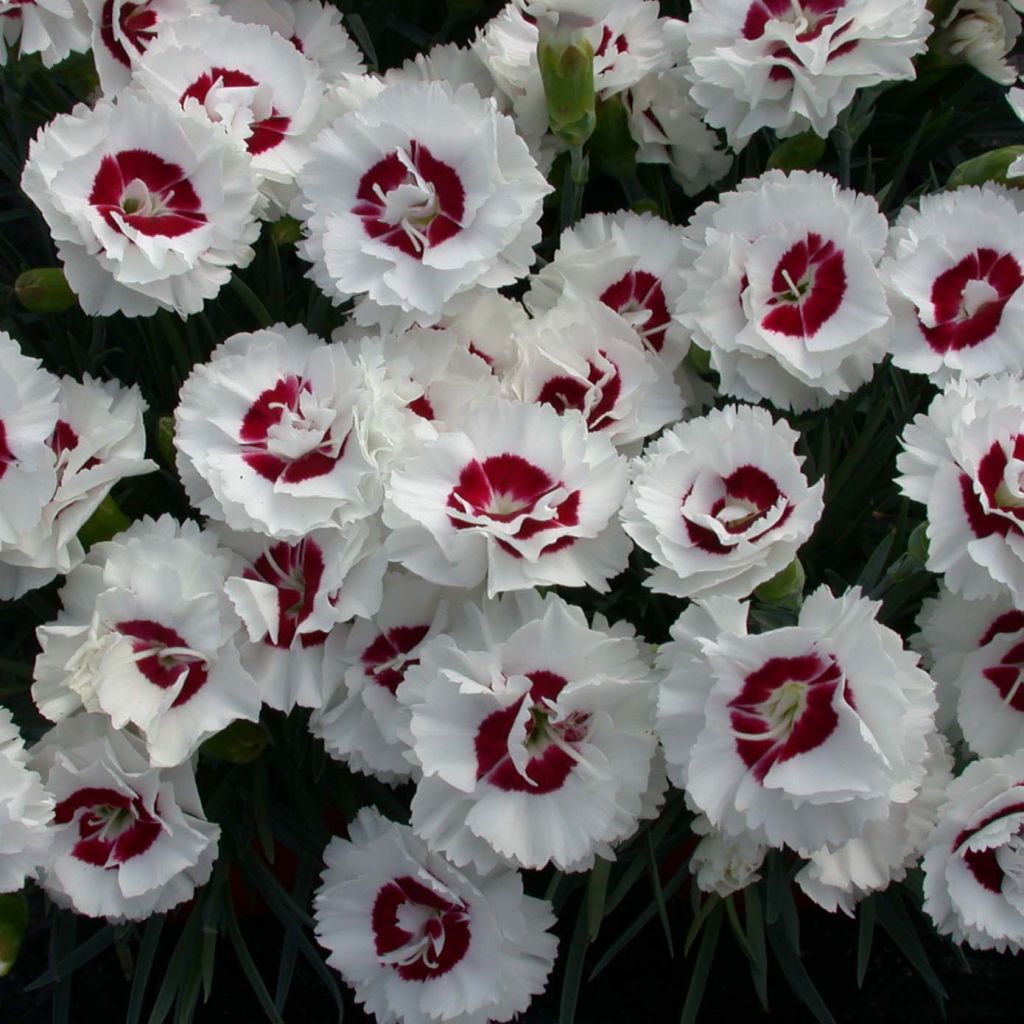

Dianthus plumarius Scent First Coconut Sundae
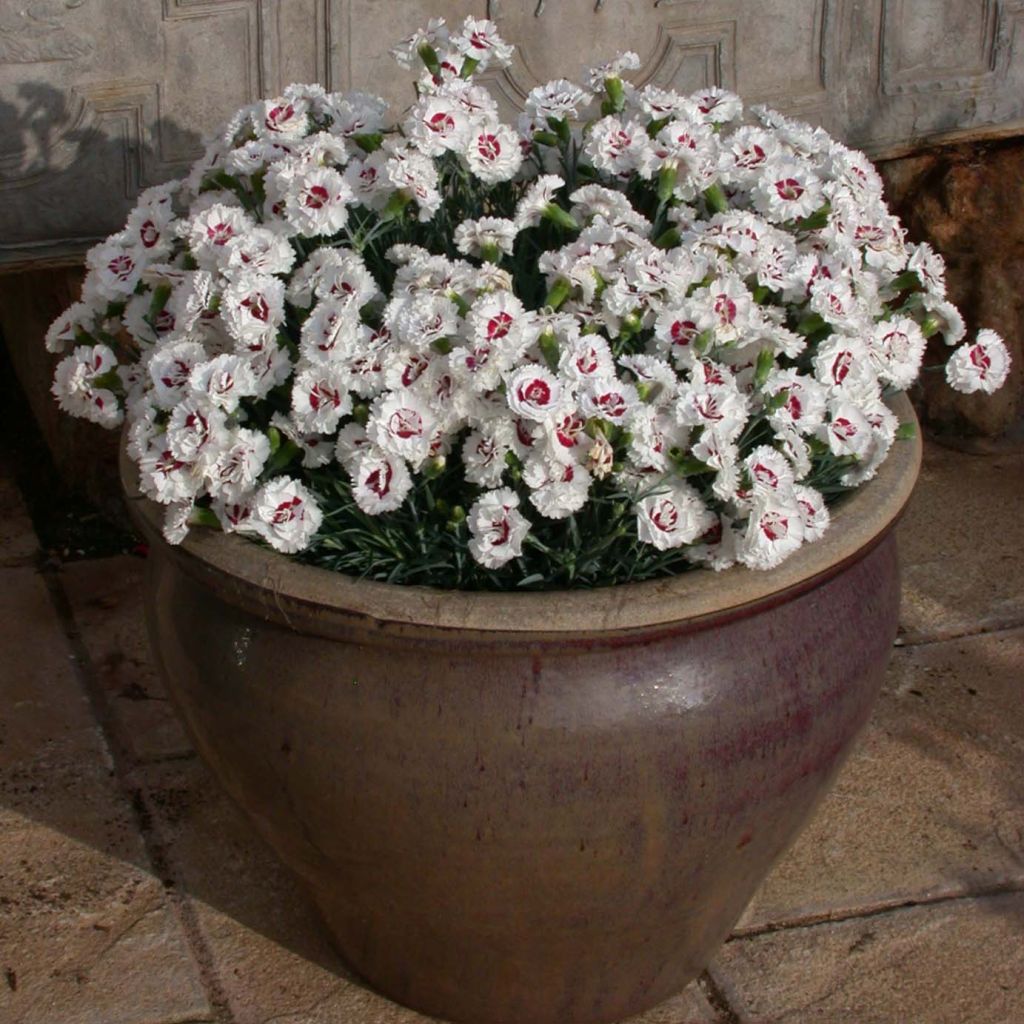

Dianthus plumarius Scent First Coconut Sundae
Dianthus plumarius Scent First Coconut Sundae
Dianthus x plumarius Scent First® Coconut Sundae
Garden Pink, Cottage Pink, Grass Pink, Carnation
This item cannot be shipped to the selected country
Delivery charge from €5.90
More information
Schedule delivery date,
and select date in basket
This plant carries a 12 months recovery warranty
More information
We guarantee the quality of our plants for a full growing cycle, and will replace at our expense any plant that fails to recover under normal climatic and planting conditions.
From €5.90 for pickup delivery and €6.90 for home delivery
Express home delivery from €8.90.

Does this plant fit my garden?
Set up your Plantfit profile →
Description
Dianthus Scent First Coconut Sundae adds a sparkling and fresh touch to the excellent Scent First® series of carnations. It features double white flowers that are awakened by a beautiful purple-violet eye in the throat. Like all its siblings in the Scent First® series, it has a compact habit, offers a long and pleasantly fragrant summer flowering, and performs excellently in the garden. Particularly suitable for pot cultivation due to its small size and abundant flowering, it is also an excellent perennial for sunny borders, where it forms persistent cushions of beautiful grey-blue foliage even in winter.
Dianthus 'Coconut Sundae' belongs to the Caryophyllaceae family. It is a recently selected cultivar in England resulting from cross-breeding between D. plumarius and D. gratianopolitanus, among others. D. plumarius is a European perennial which is the main ancestor of different groups of carnations, both old-fashioned and modern. D. gratianopolitanus is native to Europe and Asia. It has passed on to its descendants its compact habit and its wonderful clove scent. Coconut Sundae grows fairly rapidly and consistently. It reaches a maximum height of 30cm (12in) with a spread of 25cm (10in) or more. This carnation forms a dense clump. From May to August, it produces wide double flowers measuring 4 to 5cm (2in) in diameter with toothed petals. They are carried on short, often branched stems. Its linear, glabrous, pointed, evergreen, and leathery leaves are a superb grey-blue colour.
Dianthus 'Coconut Sundae' is a very attractive plant for patios or balconies. Requiring little maintenance, it is hardy to at least -15°C (5°F). It is undemanding in terms of water, but loves the sun. It will thrive in well-drained borders, embankments, and rock gardens. Its beautiful scented flowers bring a lively touch to even the simplest decor. For example, it can be planted in front of other carnations with white, red, or pink colours ('Devon Dove', 'Devon Magic', 'Devon Cream', 'Letitia Wyatt'), or to accompany the blue bells of campanulas, the lavender-blue mosses of catmints, and small lavenders. Alternatively, plant it with other flowering cushions like helianthemums, silenes, wall bellflowers, Caucasus rock cress, creeping phlox, Erigeron karvinskianus, and bloody cranesbill (Geranium sanguineum). To evoke old-fashioned gardens, a small border of these charming carnations can be planted at the base of peony clumps and old roses. This plant also looks lovely between the stones of a wall or pavement, in a trough or in a container.
Report an error about the product description
Dianthus plumarius Scent First Coconut Sundae in pictures
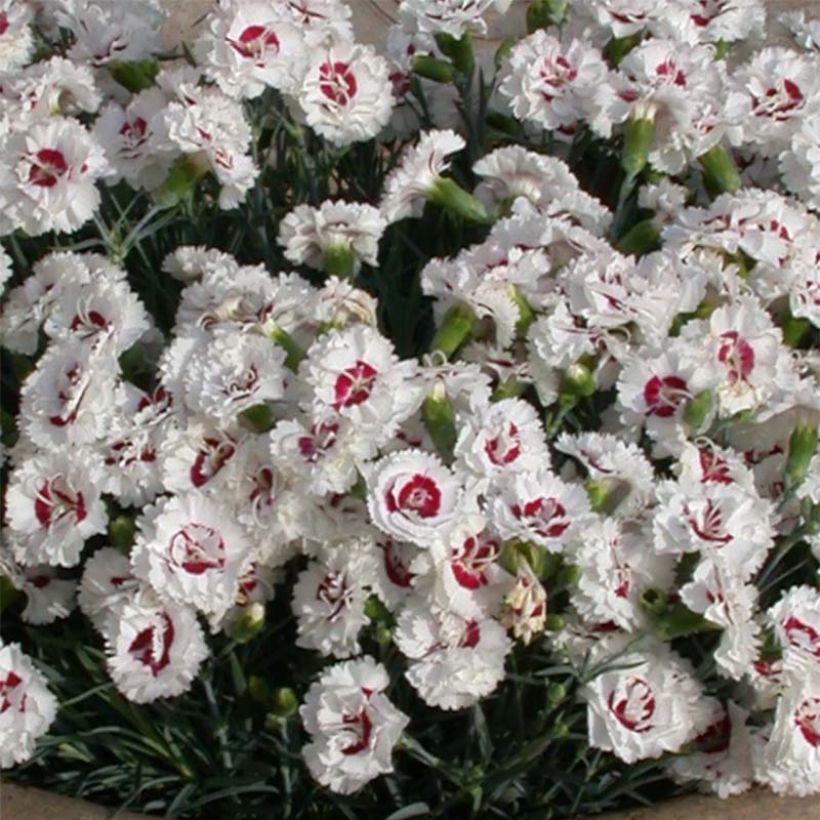

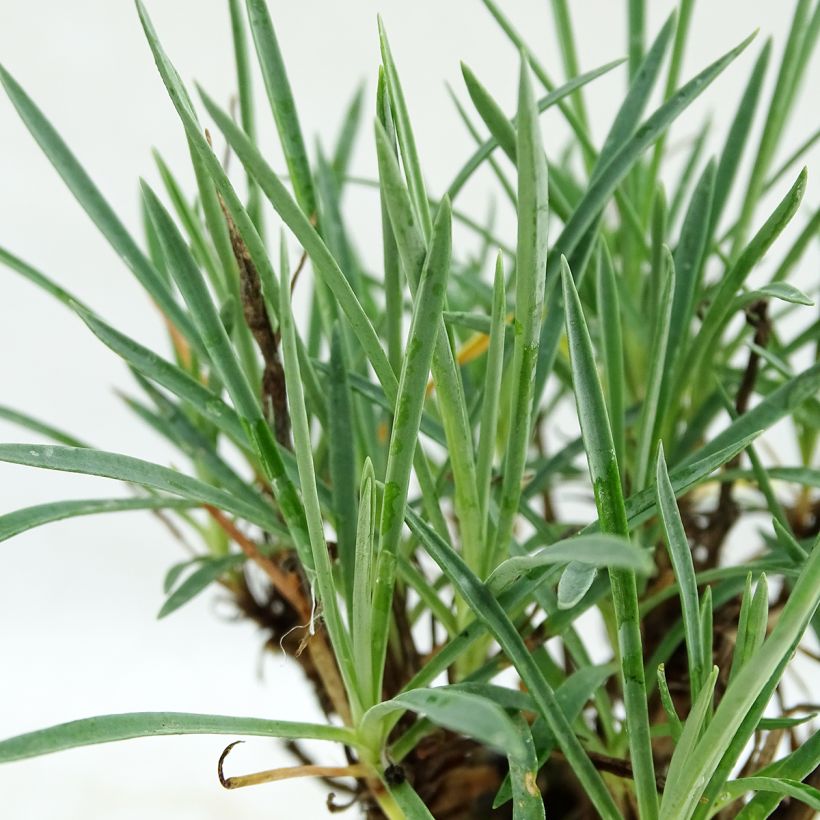

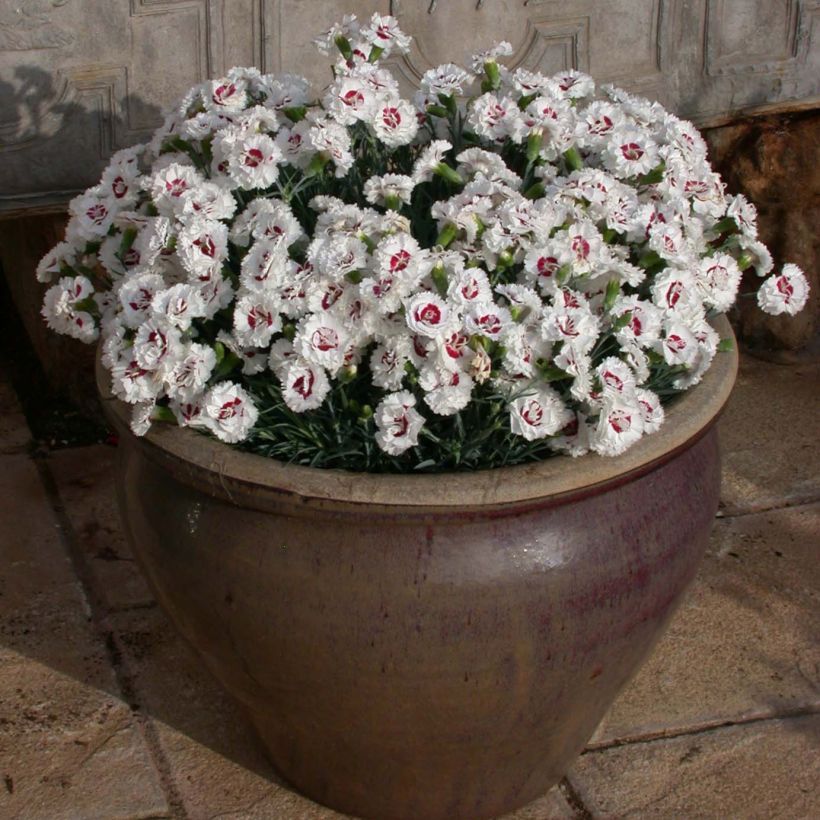

Flowering
Foliage
Plant habit
Botanical data
Dianthus
x plumarius
Scent First® Coconut Sundae
Caryophyllaceae
Garden Pink, Cottage Pink, Grass Pink, Carnation
Cultivar or hybrid
Other Dianthus - Pinks
Planting and care
Plant Dianthus 'Coconut Sundae' in ordinary, permeable and humiferous, stony, rather calcareous, dry to moist, and especially well-drained soil. Gravel-rich soil yields good results. In open ground, this plant is very hardy, withstanding temperatures beyond -15°C (5°F). It prefers a very sunny exposure. Lightly prune the clump after summer flowering to encourage regrowth in September. In rich soil, prune part of the foliage with shears after flowering to maintain a dense habit. Apply a balanced fertiliser to poor soil in March. Divide the clumps every 3 years to rejuvenate those whose base is thinning. Propagate by performing layering or by taking cuttings.
Planting period
Intended location
Care
-
, onOrder confirmed
Reply from on Promesse de fleurs
Spring flowering perennials
Haven't found what you were looking for?
Hardiness is the lowest winter temperature a plant can endure without suffering serious damage or even dying. However, hardiness is affected by location (a sheltered area, such as a patio), protection (winter cover) and soil type (hardiness is improved by well-drained soil).

Photo Sharing Terms & Conditions
In order to encourage gardeners to interact and share their experiences, Promesse de fleurs offers various media enabling content to be uploaded onto its Site - in particular via the ‘Photo sharing’ module.
The User agrees to refrain from:
- Posting any content that is illegal, prejudicial, insulting, racist, inciteful to hatred, revisionist, contrary to public decency, that infringes on privacy or on the privacy rights of third parties, in particular the publicity rights of persons and goods, intellectual property rights, or the right to privacy.
- Submitting content on behalf of a third party;
- Impersonate the identity of a third party and/or publish any personal information about a third party;
In general, the User undertakes to refrain from any unethical behaviour.
All Content (in particular text, comments, files, images, photos, videos, creative works, etc.), which may be subject to property or intellectual property rights, image or other private rights, shall remain the property of the User, subject to the limited rights granted by the terms of the licence granted by Promesse de fleurs as stated below. Users are at liberty to publish or not to publish such Content on the Site, notably via the ‘Photo Sharing’ facility, and accept that this Content shall be made public and freely accessible, notably on the Internet.
Users further acknowledge, undertake to have ,and guarantee that they hold all necessary rights and permissions to publish such material on the Site, in particular with regard to the legislation in force pertaining to any privacy, property, intellectual property, image, or contractual rights, or rights of any other nature. By publishing such Content on the Site, Users acknowledge accepting full liability as publishers of the Content within the meaning of the law, and grant Promesse de fleurs, free of charge, an inclusive, worldwide licence for the said Content for the entire duration of its publication, including all reproduction, representation, up/downloading, displaying, performing, transmission, and storage rights.
Users also grant permission for their name to be linked to the Content and accept that this link may not always be made available.
By engaging in posting material, Users consent to their Content becoming automatically accessible on the Internet, in particular on other sites and/or blogs and/or web pages of the Promesse de fleurs site, including in particular social pages and the Promesse de fleurs catalogue.
Users may secure the removal of entrusted content free of charge by issuing a simple request via our contact form.
The flowering period indicated on our website applies to countries and regions located in USDA zone 8 (France, the United Kingdom, Ireland, the Netherlands, etc.)
It will vary according to where you live:
- In zones 9 to 10 (Italy, Spain, Greece, etc.), flowering will occur about 2 to 4 weeks earlier.
- In zones 6 to 7 (Germany, Poland, Slovenia, and lower mountainous regions), flowering will be delayed by 2 to 3 weeks.
- In zone 5 (Central Europe, Scandinavia), blooming will be delayed by 3 to 5 weeks.
In temperate climates, pruning of spring-flowering shrubs (forsythia, spireas, etc.) should be done just after flowering.
Pruning of summer-flowering shrubs (Indian Lilac, Perovskia, etc.) can be done in winter or spring.
In cold regions as well as with frost-sensitive plants, avoid pruning too early when severe frosts may still occur.
The planting period indicated on our website applies to countries and regions located in USDA zone 8 (France, United Kingdom, Ireland, Netherlands).
It will vary according to where you live:
- In Mediterranean zones (Marseille, Madrid, Milan, etc.), autumn and winter are the best planting periods.
- In continental zones (Strasbourg, Munich, Vienna, etc.), delay planting by 2 to 3 weeks in spring and bring it forward by 2 to 4 weeks in autumn.
- In mountainous regions (the Alps, Pyrenees, Carpathians, etc.), it is best to plant in late spring (May-June) or late summer (August-September).
The harvesting period indicated on our website applies to countries and regions in USDA zone 8 (France, England, Ireland, the Netherlands).
In colder areas (Scandinavia, Poland, Austria...) fruit and vegetable harvests are likely to be delayed by 3-4 weeks.
In warmer areas (Italy, Spain, Greece, etc.), harvesting will probably take place earlier, depending on weather conditions.
The sowing periods indicated on our website apply to countries and regions within USDA Zone 8 (France, UK, Ireland, Netherlands).
In colder areas (Scandinavia, Poland, Austria...), delay any outdoor sowing by 3-4 weeks, or sow under glass.
In warmer climes (Italy, Spain, Greece, etc.), bring outdoor sowing forward by a few weeks.

































